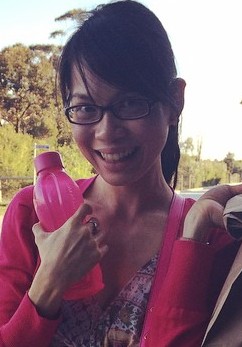Attachment Parenting – In a Nutshell
by on 02/08/2025 ...

It’s 2 am in the morning. I paced around the room trying to settle my 8 weeks old son. Does he want a feed? Was his nappy wet? Perhaps he needed more cuddles? Or it could be wind. I went through my list and ended up walking. Movement is the only thing that calmed him down.
Thoughts such as “what am I doing wrong?” or “Am I missing something?” entered my mind. My parents who stayed with me constantly asked “What’s wrong? Why is he crying?” Sometimes I have an answer, sometimes I don’t.
Those early days of parenting were hazy. I was filled with adoration and love for my newborn, but it was filled with the routine of breastfeeding, pain management and trying to get to know him better. Asher was also trying to know the world and us, hence the confusion and the cries.
What is attachment parenting?
Attachment parenting is based on the attachment theory in child developmental psychology. Simply put, it means reading your child’s emotional and physical needs and responding to them. Humans strive on relationships, and research shows that secured attachment between child and main caregiver is linked to better adult relationships, mental health and social wellbeing for the child. Those early days of responding to my son’s cries, and providing cuddles seems like a natural thing to do, but it is the start of attachment parenting.
While attachment parenting appears to be trendy, many parents place pressure on themselves in being the most responsive parents or having baby close to them constantly. From baby-wearing, to co-sleeping there are many “must dos” according to websites on attachment parenting. As new parents wanting to do perfect and best for their child, it almost seems that attachment parenting adds to the non-exhaustive list of what being a good parent is about.
A warmth and caring environment for your child are keys to a secure attachment. It’s not the bells and whistles of the best baby wearing equipment or fancy co-sleeping arrangements. Heaps of cuddles and hugs promote hormones such as oxytocin to flow, increasing bonding. This love hormone is the basis of creating neural pathways responsible for self-regulation of emotions. A skill that will come handy in our lifetime.
Attachment is not spoiling
It is not to be mistaken as “giving in” as the child grows older. Boundaries and discipline is just as important as reading and responding to your child’s emotional needs. Attachment parenting is instinctive. It’s about adapting skills and strategies personalised to the child developmental needs and your family. For example, it is unlikely I would be pacing up and down the room settling Asher if he is 4 years old. Attachment parenting is about trusting yourself that you know what’s best for your child and learn to grow with him/her.
Some tips for attachment parenting:
– Regardless of age group, practice mindfulness. That is, being present-focused with your child as he/she plays. Switch off any telecommunications gadgets. Focus on the child’s smiles and facial expressions.
– When appropriate, follow your child’s lead in play. Let him/her choose what they would like to play and play with them. More often, they want you to sit with them and be present. It could be having a baby conversation, or a play with blocks.
– If the child is young, baby wearing is a good way to calm the child down if he/she is feeling unsettled.
– As the child grows older, label emotions. “You are upset because you are not allowed a chocolate”. Sit with the discomfort with him/her.
– Trust yourself. You may not know every answer, but you are there for your child.
– A semi rested functional parent helps in responding to the needs of the child. Regular exercise, eating good nutrient dense foods and having some sleep helps.
– Remember that there are no set rules for attachment parenting. Every child and family is different. You have to find what works for you and your family.

Daphne is a Clinical Psychologist residing in Perth, Western Australia. She holds a Doctorate in Clinical Psychology and specialises in working with families. She is happily married to her husband who is originally from Malaysia. A hands-on mum to an active little boy, she enjoys writing about lifestyle/health/nutrition, baking, cooking and hitting the gym for a good boxing or metabolic conditioning workout. She never refuses a well-made coffee, or dark chocolate. She writes regularly on Words That Nourish.





























